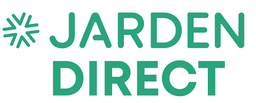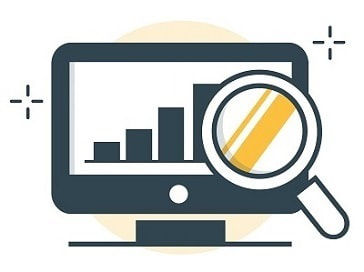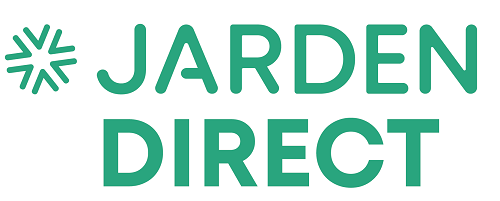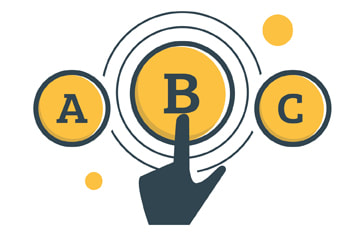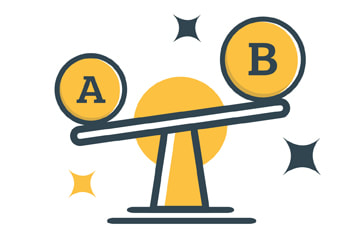Jarden Direct Review
Our review of Jarden Direct share trading and investing platform highlights brokerage fees, FX margin fees, live data offering, ASX and foreign exchanges, and suggests alternative platforms for NZX and overseas investing
Updated 10 June 2024
Important: Jarden Direct will rebrand to Hatch later in 2024. If you're a Jarden Direct client, this guide from Hatch explains what you need to know. Our review below refers to the existing Jarden Direct offering.
Important: Jarden Direct will rebrand to Hatch later in 2024. If you're a Jarden Direct client, this guide from Hatch explains what you need to know. Our review below refers to the existing Jarden Direct offering.
Summary of Jarden Direct:
To highlight the key specs of Jarden Direct, our review covers
If you want to sign up to Jarden Direct, or learn more, we suggest visiting the Jarden Direct website.
- Jarden Direct allows anyone to trade on NZX for a fixed fee of $29.90 (or 0.20% of the trade value, whichever is the greater). You can also trade on the ASX with fees from A$29.00 per trade.
- Live or real time market data, including market depth, is free and provided by offered by Iress / Thomson Reuters.
- Fundamental valuation information in respect of 300 companies listed in NZ, Australia, and Hong Kong is provided free, by Shareclarity. Jarden Direct clients receive access to the basic membership level.
- Jarden Direct is a relaunch of Direct Broking, one of New Zealand's best-known online share brokerage platforms, and offers instant do-it-yourself trading.
- The user experience delivers an easy-to-navigate and buy/sell trading through a desktop or mobile browser.
- Jarden Direct does not offer specific financial advice about any share purchase.
- In our trade cost comparison, we found Sharesies cheaper in all NZX examples given there's no minimum trade fee and a lower marginal percentage fee.
- Other investing options (with a US focus): Superhero offers US$2 trade fees, and Tiger Brokers offers low FX fees; our Superhero Review and Tiger Brokers Review explain more, and how they're significantly cheaper than Jarden Direct for non-NZ investing.
- If you're primarily a trader of foreign investments at lower values, Jarden Direct is probably not for you as the fees you'll pay will most likely exceed any specialised overseas trading platform competitor. Sharesies is one example of a platform that minimizes fees for investors starting a share portfolio, but there are others.
- Jarden Direct allows you to purchase shares and settle the payment later as well as pay by pre-arranged direct debit (both incur additional fees).
To highlight the key specs of Jarden Direct, our review covers
If you want to sign up to Jarden Direct, or learn more, we suggest visiting the Jarden Direct website.
Jarden Direct: Quick Facts
|
The Basics
|
Jarden Direct is best for:
- Frequent share investors on larger volume who prefer to buy in real-time and avoid dealing with brokers or the Sharesies platform
- Beginner (but higher-end) investors placing NZ$10,000+ trades looking for low brokerage fees for specific share purchases
- Research and data - the platform offers access to Shareclarity at the basic level (usually $15/month). This membership lets Jarden Direct users review what every company does, what their strengths and weaknesses are, how they are expected to perform and what Sharesight's analysts think of them. In terms of community, you can chat with other members and stay updated with relevant media articles, market announcements and changes to company valuations.
Jarden Direct at a Glance:
- Account minimum: There is no minimum to open an account or place a trade.
- NZX Share trading costs: $29.90 on trades up to $15,000, 0.20% on trades above $15,000.
- Australia online trades commission: A$29 per trade up to A$30,000, 0.30% on any portion above A$30,000)
- Account fees (annual, inactivity etc): No annual or inactivity fee
- Trading platform specs: Accessed via browser - currently no app is available but the website is optimised for smartphone and tablets.
- Access to research and data: Shareclarity "basic level" - the platform offers fundamental valuation information by Shareclarity, in respect of 300 companies listed in NZ, Australia, and Hong Kong.
- Access to share and bond placements including IPOs: This is through Jarden (shares), and ANZ (bonds).
- Customer support: Phone (available Monday to Friday, 8:30am - 6:00pm) and email/contact form
Jarden Direct - Pros and Cons
Where Jarden Direct Shines
Jarden Direct closely competes with ASB Securities, with three key differences:
- Interest on deposits - You can see the latest rates here (under "Interest Rates").
- Lower brokerage fees - 0.20% brokerage fee for NZX trades above $15,000 (ASB Securities charges 0.30% on trades above $10,000, a 50% premium)
- Access to Shareclarity - The platform offers fundamental valuation information by Shareclarity, in respect of 300 companies listed in NZ, Australia, and Hong Kong.
- Transparent FX fees - the exchange rate used by Jarden Direct is the market midpoint rate (sometimes referred to as the ‘spot rate’) with a currency conversion margin of an amount of 0.89% of the overseas currency amount.
- Market Research Access - Investors can access a wide range of company data for New Zealand and international investments. Such data includes financials (P/E, EPS, trade data, market cap) and performance data.
- Watchlist Functionality and Ongoing News and Research - Investors can add investments to watchlists and track their performance. News and insights, provided by Jarden and Shareclarity, is then delivered based on an investor's portfolio and watchlists.
Where Jarden Direct Falls Short
1. Small investments incur relatively high fees. Specifically:
- Jarden Direct charges a minimum of $29.90 on a trade, meaning investors will only get value for money and scale on larger transactions. For example, a $10,000 trade on the NZX won't be as cost-effective as Sharesies, and trades around $1,000 or definitely better suited to entry-level investing platforms.
- If the value of the trade is above $1,000, the fee will be $29.90. If you sell for the same or similar around, the total trade fees will be around $60, which isn't very cost-effective. Sharesies, for example, would be around $10 (0.50% on the buy - $5, and 0.50% on the sell - $5).
2. No Broker Research
- Jarden Direct doesn't send analyst reports from a Jarden team (unlike ASB Securities), but the platform offers fundamental valuation information by Shareclarity, in respect of 300 companies listed in NZ, Australia, and Hong Kong.
- The platform does not offer any analyst reports who do in-depth research on companies. By using the platform, you'll need to do your own research, such as reading annual reports and keeping up to date with market announcements. Jarden Direct is promoted as a DIY platform for this reason.
Jarden Direct: The Bottom Line
- Jarden Direct offers a user-friendly online share trading platform from the comfort of a web browser on computer, phone and tablet, with over-the-phone and email support on hand.
- Active share investors can benefit from unlimited live share data and depth supplied by Shareclarity.
- Jarden Direct competes with ASB Securities for 'above Sharesies' trades and investing. Based on the fees, we regard it as superior to ASB Securities.
- However, due to the low-cost nature of platforms such as Sharesies and Interactive Brokers, for almost all trade sizes, Jarden Direct is more expensive. Our comparison tables are presented below (in the next section) to demonstrate the differences.
Jarden Direct: Alternatives for Small Trades & Overseas Trades (Sharesies and Interactive Brokers)
Alternatives for Small Trades
Alternatives for Australian and other Overseas Trades
- If you are trading in small amounts (i.e. less than $1,000), you'll be paying around 6% in total brokerage fees when you buy and sell given Jarden Direct's minimum $29.90 trade fee.
- There are many other investment options that let you invest in the NZX (or related securities) with minimal fees - we recommend reading our guides to Sharesies, InvestNow and SmartShares. These are suitable alternatives to invest in the market while you build up funds to make an investment large enough to absorb the fees charged by Jarden Direct.
- Our table below indicates that Sharesies is more cost-effective on all trade sizes we tested from $500 to $25,000, and due to its 0.10% incremental brokerage fee on amounts over $3,000, it will always be the most cost-effective option given Jarden Direct's 0.20% brokerage fee (on amounts over $15,000)
Alternatives for Australian and other Overseas Trades
- Despite a transparent 0.89% commission structure on a mid-point FX rate, if you regularly trade outside of New Zealand markets, it may be more cost-effective to open up a foreign currency account with another share broker, or use Interactive Brokers.
- As a background, Jarden Direct's process is easy - investors make an NZD deposit and choose which currency to fund in their Jarden Direct account, whereby the 0.89% margin fee is charged. No interest is earned on foreign currency accounts.
- For Australian share investing: Jarden Direct charges AU$29 for trades up to AU$30,000, plus the 0.89% FX margin. Sharesies, for example, charges 0.50% for trades up to AU$3,000 (and 0.10% p.a. for every amount above), plus a 0.40% FX commission on mid-point rates. Interactive Brokers charges 0.08% brokerage and an FX fee of 0.002%, with a minimum USD 2 transaction fee.
NZX Comparison: Jarden Direct Brokerage Fees vs Sharesies Fees for New Zealand Share Trades
Our comparison below shows the total trade fees charged by Jarden Direct and Sharesies for a variety of different amounts on the NZX. To make the comparison easier, we outline the tiered brokerage fees charged by both platforms.
Trade Value |
Jarden Direct Brokerage Fee ($29.90/trade up to NZ$15,000 + 0.20% for the portion of the trade value exceeding NZ$15,000) |
|
$500 |
$29.90 |
$9.50 |
$2,000 |
$29.90 |
$25 |
$6,000 |
$29.90 |
$25 |
$10,000 |
$29.90 |
$25 |
$17,500 |
$34.90 ($29.90 + 0.20% X $2,500) |
$25 |
$25,000 |
$49.90 ($29.90 + 0.20% X $10,000) |
$25 |
Australian Shares - Jarden Direct vs ASB Securities vs Superhero vs Sharesies vs Tiger Brokers
- Our table below reflects the differences between trading platforms when buying $1,500 shares (for example, around 300 Qantas shares, or 16 Xero shares)
- All fees and costs are in AUD
- Some platforms call their brokerage fee a 'transaction' fee or similar, but for the purposes of our comparison, we have kept the column's title consistent.
- We've ranked Superhero second; customers are charged NZ$0.50 for every AU$100 converted from AUD back to NZD. We believe this neutralises the seemingly higher 0.50% fee (AU$0.50 for every NZ$100) charged when converting NZD to AUD for the purchase of Australian shares or ETFs.
Investment Platform |
Brokerage fee |
FX fee NZD:AUD |
Pass-through fees / Agency fee |
Total Cost |
$0.025% X trade value (minimum $5 per order) |
0.35% |
0.03% X Trade Value |
$10.70, comprised of: $5 (Brokerage) $5.25 (FX) $0.45 (Pass-Through) |
|
$2 |
0.50% |
nil |
$9.50 |
|
1.9% up to a cap of $15 |
0.50% |
nil |
$22.50 |
|
Jarden Direct |
$29.00 (trade value up to $30,000) |
Up to 1.50% (the current margin applied is 0.89% as at 5 May 2023 per their guidance) |
nil |
$42.35 |
$15 (up to and including $1,000) $30 ($1,000 to $10,000) 0.30% (over $10,000) |
Not disclosed |
0.40% minimum $40 per order |
At least $70 |
US Shares - Superhero vs Sharesies vs Hatch vs Stake vs Tiger Brokers vs Jarden Direct vs ASB Securities
- Our table below reflects the differences between trading platforms when buying US$1,500 shares (for example, around 9-10 Apple shares, or 5 Microsoft shares)
- All fees and costs are in USD
- Some platforms call their brokerage fee a 'transaction' fee or similar, but for the purposes of our comparison, we have kept the column's title consistent.
- We've ranked Superhero second in the table due to its conversion fee. Customers are charged NZ$0.50 for every US$100 converted from USD back to NZD. We believe this neutralises the seemingly higher 0.50% fee charged when converting NZD to USD (e.g. US$0.50 per NZ$100 exchanged) for the purchase of US shares or ETFs.
Investment Platform |
Brokerage fee |
FX fee NZD:USD |
Pass-through fees / Agency fee |
Total Cost |
Minimum $2 per order (flat fee to buy or sell up to 200 shares and USD 0.01 for every additional share after that per transaction) |
0.35% |
$0.003 per share |
$7.25 |
|
$2 |
0.50% (charged in USD) |
nil |
$9.50 |
|
$0.01 per share minimum $3 per order |
0.50% |
nil |
$10.50 |
|
1.9% up to a cap of $5 |
0.50% |
nil |
$12.50 |
|
$3 |
1.00% |
nil |
$18.00 |
|
0.60% (minimum of US$50 per trade plus agency fee) |
Not disclosed |
0.40% minimum $40 per order |
At least $90.00 |
|
Jarden Direct |
Greater of $69.50 or 0.60% for approved NYSE and NASDAQ Listed Securities
|
Up to 1.50% (the current margin applied is 0.89% as at 5 May 2023 per their guidance) |
nil |
$82.85 |
Notes:
- Minimum brokerage is A$29 for AUD trades
- 0.89% margin fee on the best NZD:AUD market midpoint FX rate
Jarden Direct - Must-Know Facts
To better understand what Jarden Direct offers, we've listed some must-know facts below which highlight the finer points of the platform's offering.
The interest rate on money in your account is competitive with call accounts from banksThe interest rates offered by Jarden Direct are similar to what you would find in top-paying call accounts and above the norm in investing platforms.
|
Dividends get paid back into your Jarden Direct accountIf you've received an overseas dividend, it will be translated back into the relevant currency account. For example, if you receive a US$100 dividend from shares in Microsoft, your Jarden Direct USD account will have US$100 added. Unlike NZD deposits, the interest rate for non-NZD accounts is 0.00%. If you then move foreign balances back to NZD, an FX margin is applied (0.89%).
As a background, Jarden Direct issues its customers with a multi-currency cash account, free of charge. To invest, you can apply NZD to one or multiple foreign currencies. This means you can invest and settle efficiently. In terms of asset protection, the cash funds are linked to your account and held in a pooled segregated trust account at ANZ bank. Currencies offered include New Zealand dollars (NZD), Australian dollars (AUD), US dollars (USD), Euro (EUR), British pounds (GBP), Japanese yen (JPY), Canadian dollars (CAD), Swiss francs (CHF), Hong Kong dollars (HKD), Singapore dollars (SGD), Norwegian krone (NOK) and Swedish krona (SEK). |
You'll need to sign some paperwork if you want to invest in the Australian and unlisted New Zealand marketsWhile Jarden Direct is an online (and phone) based platform, there are some paperwork requirements:
|
You can still trade if Jarden Direct's website is downJarden Direct offers a phone service, although the trade fees are higher. While the platform doesn't have a reputation for going offline, it's unique by offering a phone-based backup option. If the website is down, you can ask for a fee reduction given there is no alternative option but to phone.
|
If you're planning to trade outside of the NZX, there are better platformsAs mentioned above, Interactive Brokers' trade fee is 0.08% of the total value (minimum $6 fee). Their fees are a fraction of what Jarden Direct charges for the same trade. Any overseas dividends and share sale payments are deposited into your trading account, just as they would be with Jarden Direct, so you can pick when you want to transfer the money into NZD.
|
Related Guides
Do you trade with Jarden Direct and have something you'd like to share with us? We'd love to hear from you - contact our team with your experiences.
- Sharesies Review
- InvestNow Review
- Superhero Review
- Tiger Brokers Review
- Flint Wealth Review
- Investing in the NZX
- Hatch Review
- Stake Review
- Sharesies vs Hatch vs Stake Comparison
- ETFs vs Shares
- Ethical Investing
Do you trade with Jarden Direct and have something you'd like to share with us? We'd love to hear from you - contact our team with your experiences.

